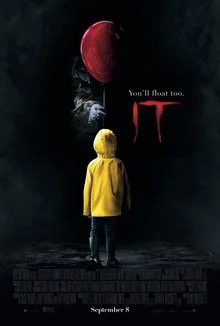Director: Andy Muschietti
Cast: Jaeden Lieberher, Bill Skarsgård, Jeremy Ray Taylor, Sophie Lillis
Have I Seen it Before: I can’t believe I look back on seeing this in the theater as a simpler time, but I do… It’s hard to forget how terrifying in an unhinged sort of way that the “slideshow” scene was. I wasn’t even 100% sure what had happened in that scene, and it was only about 2:00 AM that following morning before I realized I had neglected to fall asleep in favor of trying to decode on a cinematic level what happened in just that scene.
Did I Like It: It’s unfortunate that IT - Chapter Two (2019) was such a befuddling disappointment, because this film ends up getting the short shrift in that deal. Whereas the conclusion so thoroughly misses the mark in every possible way (while at the same time not winding up completely embarrassing), this film capitalizes on every potential pitfall and turns it into an opportunity to make a better film.
Skarsgård has the tallest task on spec, as Tim Curry is the only consistently good thing about the first, made-for-TV adaptation It (1990). Literally no other performer in either parts of this new adaptation has been compared to their predecessor (or later on, the adults, although I did have some thoughts on Bill Hader vs. Harry Anderson). The new Pennywise acquits himself well and becomes just as iconic as his predecessor, which was no small accomplishment. His Pennywise harnesses some of the stranger elements from the source material and makes the entity less merely a murderous clown and more the ancient evil from within cosmos that he always could have been. His is the only thing that survives two movies essentially unscathed.
But the movie’s true secret weapon lies with the kids. Casting a batch of Losers could have been a big swing and a miss, but not only does each of the kids indelibly occupy their role (although Mike Hanlon (Chosen Jacobs) gets far less development than the character deserves), but they have such a seemingly genuine chemistry amongst one another that I can almost understand Muschietti’s impulse to keep the kids in the second part, even though their stories are effectively concluded here. Now, if only they had managed to pull that off the second time around… If it helps, I think the story of the children might just be more interesting than the adults, and Chapter Two never really had a chance.

